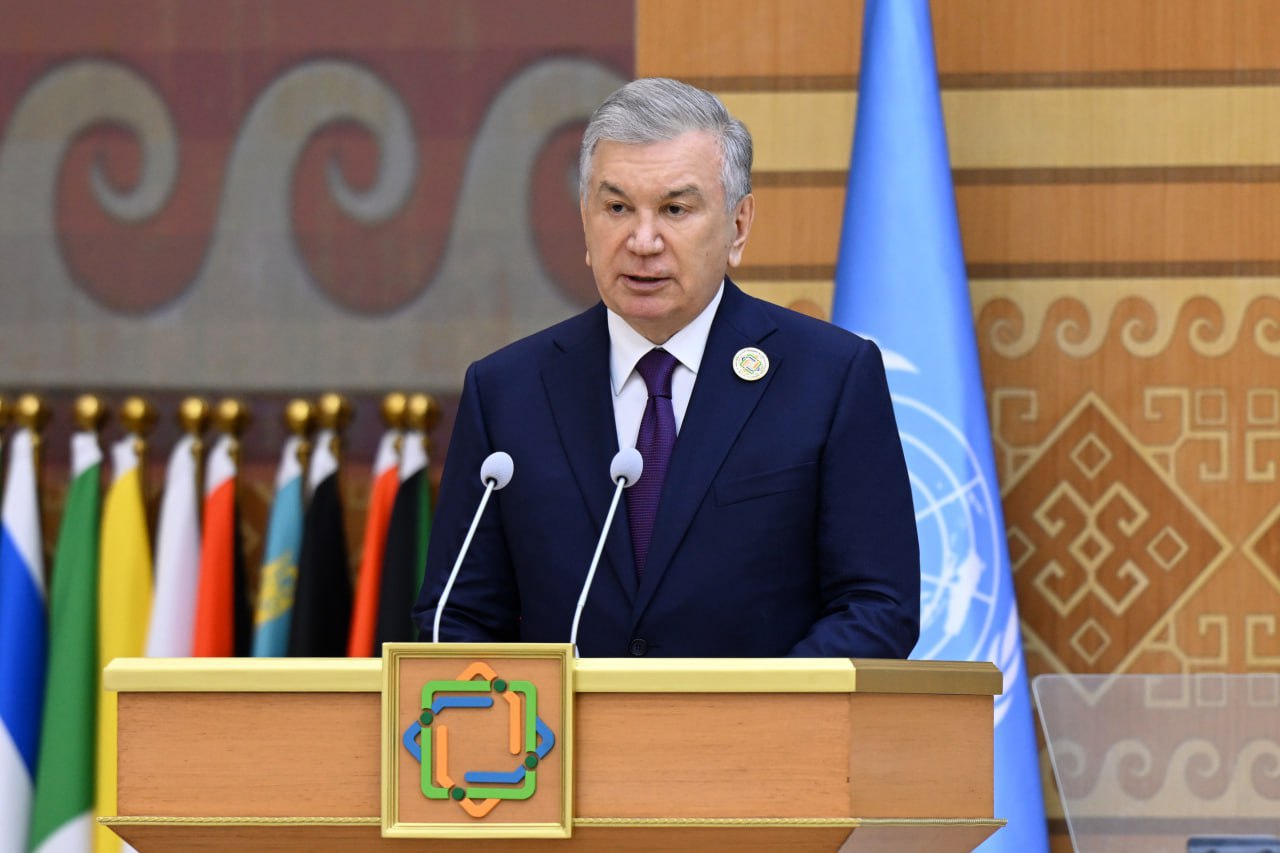TASHKENT, Uzbekistan, August 5. President Mirziyoyev's address at the UN LLDC3 Conference underscored Uzbekistan's push for global action to improve transit access for landlocked nations, calling for coordinated infrastructure investment, fair logistics policies, and inclusive development mechanisms, Trend reports via the Uzbek President’s office.
He noted that the Central Asian region loses up to 2 percent of its GDP annually due to high transportation costs and transit instability, and logistics costs account for up to 60 percent of the total cost of goods, which is several times higher than the global average.
According to the President, Uzbekistan has access to maritime transport routes only by crossing the territories of several other countries. With the nearest seaports located nearly 3,000 kilometers away, this geographic remoteness results in serious challenges, including high tariffs, limited capacity of transport corridors and infrastructure, and dependence on the customs and transit policies of neighboring countries. In this context, he emphasized that developing new, reliable transit corridors and logistics infrastructure is essential for ensuring sustainable economic progress throughout Central Asia.
The President highlighted that the issue being discussed today is fundamentally about justice, ensuring that landlocked countries can participate in the global economy on equal footing with coastal nations. Solving this problem, he noted, requires fulfilling three essential conditions: modernizing infrastructure as the foundation for sustainable development; strengthening regional interconnectivity to prevent disruptions; and securing the right to development as a key component of global equality.
He emphasized that in recent years, Uzbekistan has taken systematic steps to develop a modern transport and logistics network, with the active involvement of the private sector. The country has made notable progress in increasing openness and transparency in the logistics sector and is implementing a comprehensive program to digitize trade and transport processes. Structural economic reforms, trade liberalization, and a radically improved investment climate have already produced tangible results, boosting competitiveness and accelerating innovation.
A powerful driver behind these changes has been the achievement of a new level of trust and partnership across Central Asia. A single transport and logistics space is taking shape in the region, with joint programs and strategic projects aimed at transforming Central Asia into a fully-fledged transit hub connecting East and West, North and South. In recent years, mutual trade volumes have increased 4.5 times, investment flows have doubled, and the number of joint ventures has grown fivefold.
This year, together with regional partners, Uzbekistan began construction of the China–Kyrgyzstan–Uzbekistan railway. Freight traffic along the Uzbekistan–Turkmenistan–Iran–Türkiye corridor has also increased significantly.
President Mirziyoyev called on the international community to implement concrete, feasible, and institutionally supported solutions to overcome common challenges faced by landlocked developing countries. In this regard, he put forward several proposals.
He called for coordinated international action to accelerate the development of transport corridors and infrastructure, and specifically supported fast-tracking the construction of the Uzbekistan–Afghanistan–Pakistan railway. Integrating this route with the China–Kyrgyzstan–Uzbekistan railway under construction would open up vast opportunities for new economic connectivity and create a sustainable regional transport framework. The President also emphasized the importance of further developing the Middle Corridor. To unlock its full potential, he stressed the need for a coordinated transit policy, unified rules, and the adoption of reasonable tariffs for container shipping.
President Mirziyoyev also proposed the development, under the United Nations, of a Global Agreement on Transit Guarantees for Landlocked Countries. Such a mechanism, he said, would ensure fair access to ports and communication networks, reduce transportation risks, and help eliminate inequalities in global logistics systems.
He highlighted the growing need for flexible investment tools to finance major infrastructure projects. Central Asia alone requires nearly $40 billion in annual investments in transport infrastructure. To address this, he proposed establishing a UN-backed fund to support the logistical integration of landlocked countries, with resources to be mobilized from donor nations, international development institutions, and global programs.
Furthermore, he proposed the creation of a Global Vulnerability Index for Landlocked Countries. This index, he explained, would serve as a practical instrument for objectively assessing the transit-related limitations of landlocked nations, expanding access to international financial and technical programs, and distributing resources more effectively based on real-world conditions. Importantly, this index should also be taken into account when evaluating the competitiveness and investment climate of these countries.
He reiterated Uzbekistan’s commitment to the establishment of an Innovation Hub for Agricultural Development in the country. The hub would support the introduction of adaptive agricultural technologies, promote innovative water-saving solutions, and enhance food security, while also facilitating the exchange of knowledge and best practices.
The President also stressed the importance of engaging experts and think tanks in formulating effective strategies to overcome shared challenges. He proposed organizing a series of international forums and roundtable discussions focused on deeper integration into global value chains, the development of artificial intelligence and digital technologies, expansion of cross-border investment, and support for startups. Uzbekistan also plans to actively participate in the International Think Tank for Landlocked Developing Countries.
In conclusion, President Mirziyoyev emphasized that equal access to global markets must be guaranteed for all nations. This is not only an economic necessity but also a crucial factor for achieving sustainable development, fostering trust, and strengthening cooperation in international relations. He reaffirmed Uzbekistan’s readiness to engage in constructive, long-term partnerships aimed at shaping a fair and inclusive global development architecture.







